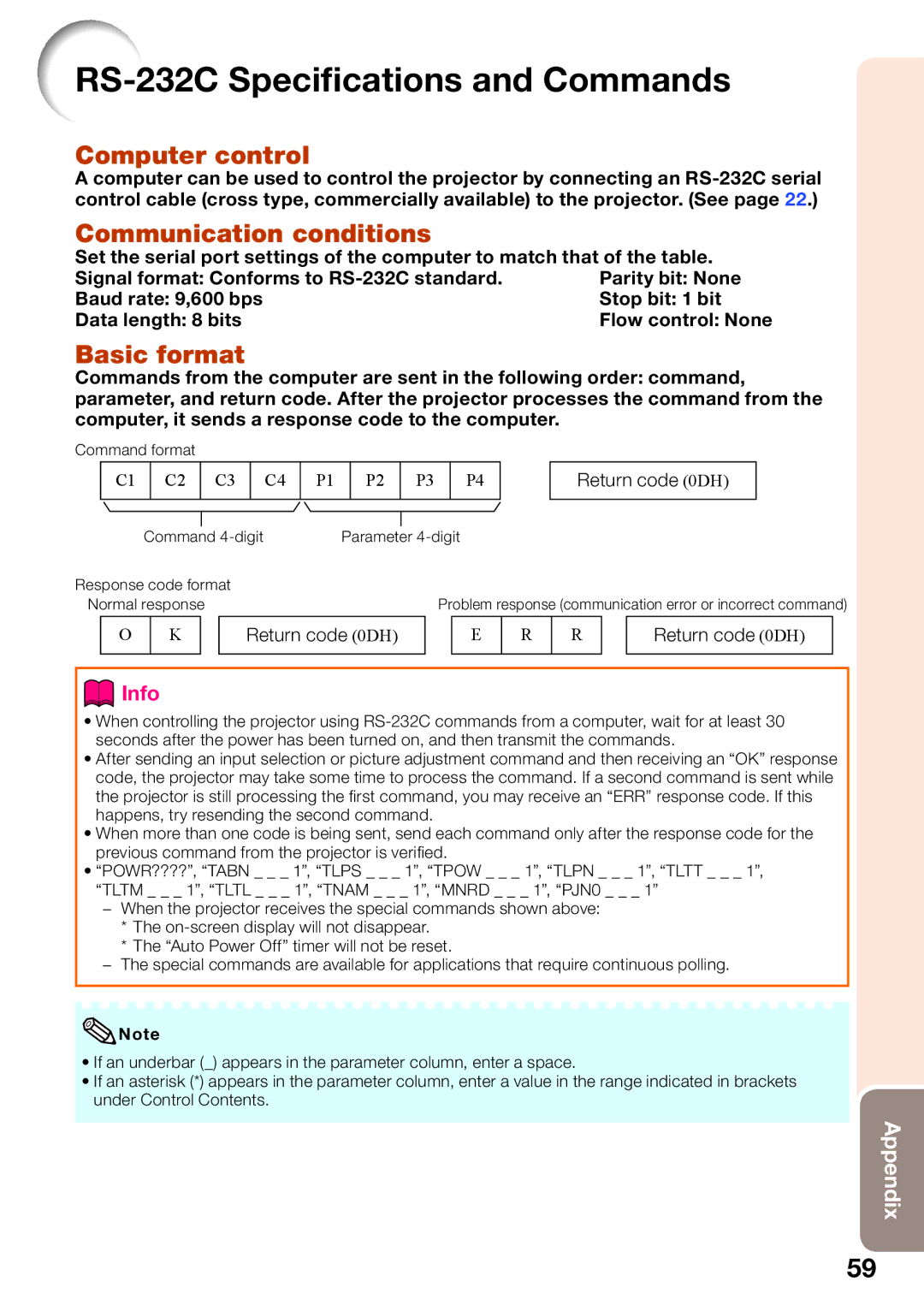
RS-232C Specifications and Commands
Computer control
A computer can be used to control the projector by connecting an
Communication conditions
Set the serial port settings of the computer to match that of the table.
Signal format: Conforms to | Parity bit: None |
Baud rate: 9,600 bps | Stop bit: 1 bit |
Data length: 8 bits | Flow control: None |
Basic format
Commands from the computer are sent in the following order: command, parameter, and return code. After the projector processes the command from the computer, it sends a response code to the computer.
Command format
C1
C2
C3 C4 P1
P2 P3
P4
Return code (0DH)
Command | Parameter |
Response code format |
|
Normal response | Problem response (communication error or incorrect command) |
O
K
Return code (0DH)
E
R
R
Return code (0DH)
 Info
Info
•When controlling the projector using
•After sending an input selection or picture adjustment command and then receiving an “OK” response code, the projector may take some time to process the command. If a second command is sent while the projector is still processing the fi rst command, you may receive an “ERR” response code. If this happens, try resending the second command.
•When more than one code is being sent, send each command only after the response code for the previous command from the projector is verifi ed.
•“POWR????”, “TABN _ _ _ 1”, “TLPS _ _ _ 1”, “TPOW _ _ _ 1”, “TLPN _ _ _ 1”, “TLTT _ _ _ 1”,
“TLTM _ _ _ 1”, “TLTL _ _ _ 1”, “TNAM _ _ _ 1”, “MNRD _ _ _ 1”, “PJN0 _ _ _ 1”
−When the projector receives the special commands shown above: * The
* The “Auto Power Off” timer will not be reset.
−The special commands are available for applications that require continuous polling.
![]() Note
Note
•If an underbar (_) appears in the parameter column, enter a space.
•If an asterisk (*) appears in the parameter column, enter a value in the range indicated in brackets under Control Contents.
Appendix
59
